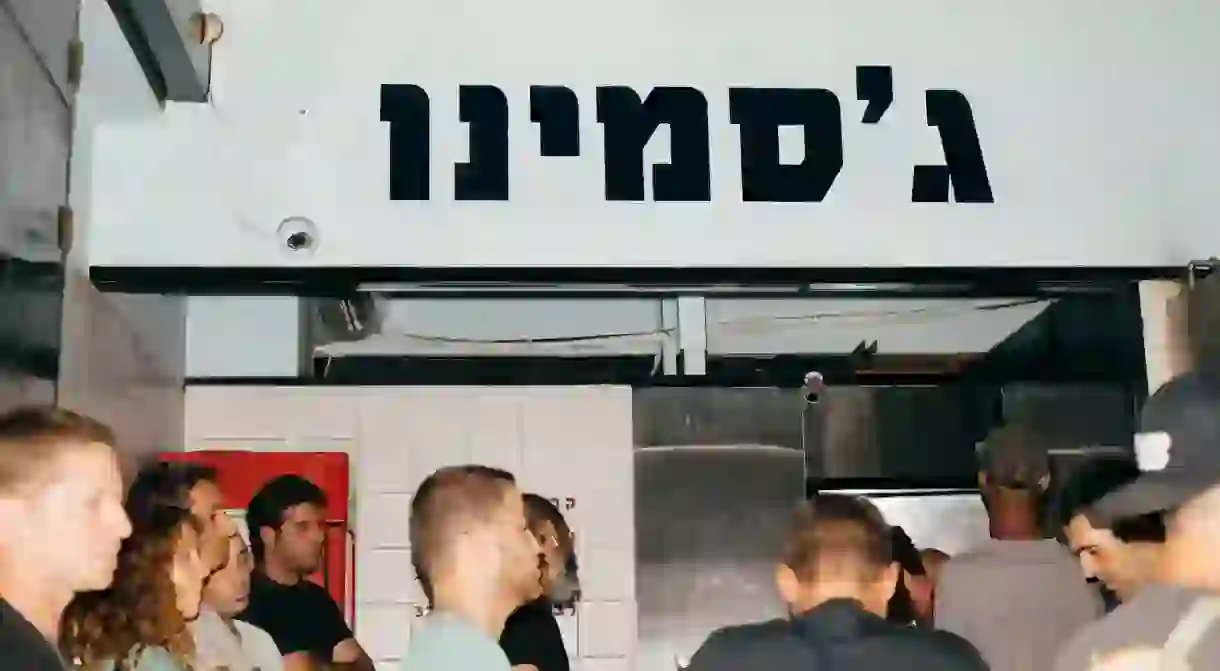Top Hebrew Slang Words That You Should Learn

Going to Tel Aviv and want to impress the locals with a few Hebrew slang words? Here are ten words in colloquial Hebrew that will convince the crowds that you’re almost a local. All are single words (many of which you can learn from the street art), so no need to memorize whole sentences; using them in English phrases is also okay in order to create a rapport with Tel Avivis.
Did you know you can now travel with Culture Trip? Book now and join one of our premium small-group tours to discover the world like never before.

1. Hi-oosh
Hi — like hello — plus the -oosh suffix; the result sounds like ‘high-oosh.’ This is a cutesy ‘hi,’ heard more and more in Hebrew these days. Hi-oosh can be said at an entrance to a restaurant to a younger waiter or waitress, and usually he or she will smile back. Not everybody is into adding the diminutive -oosh suffix, however, as it’s considered teenage language. Another version is bye-oosh for ‘bye.’ The suffix can be also added to names, just like the Italian -ino and Spanish -ito. Do not use hi-oosh in formal occasions.
2. Nu
Used like ‘C’mon’ — for example: ‘Nu, are you ready yet?’ It’s a Yiddish word and can be used in English sentences, as well. Nu is also used when someone is beating around the bush; saying, ‘Nu? I wanna hear all about it,’ could do the trick.
3. Stam
Stam, pronounced like ‘stud’ with an ‘m’ at the end, means ‘for no reason’ or ‘just like that’: ‘Stam, I am at home, reading a book, nothing special.’ When pronounced like staaaaam, it means ‘just kidding!’ and can be used to play down things that are perceived as ‘heavy.’ When stam is said about a movie, book or restaurant, it means ‘it’s nothing to write home about.’
4. Sababa
Sababa is an Arabic word that is used all the time in modern Hebrew. Sababa is exactly like ‘cool.’ ‘So we meet at 8pm?’ Sababa. ‘How’s the coffee here?’ Sababa. As superlatives are worn out easily, sababa started by meaning ‘amazing’ and over time came to mean ‘cool,’ ‘great’… sometimes it can just mean ‘okay.’ To be sababa with something means ‘it’s all good.’

5. Dai
Pronounced like ‘die’ in English, dai means ‘enough’ or ‘stop.’ If someone is pouring a drink, dai can be used to tell him when to stop. It can also be used to as a means of showing disbelief, like a Hebrew ‘get out of here… really?’: ‘I am quitting my job.’ Dai ! To make an extra impact you can prolong the ‘ah’ sound, and pronounce it daaaaaaai.

6. Yoffi
Yoffi means beauty in the dictionary, but in colloquial Hebrew it’s ‘just great’ and is used as an adverb. Haya yoffi means ‘it was great.’ Yoffi can also mean ‘bravo’ or ‘way to go!’ with the right enthusiastic intonation.
7. Zazim
Zazim literally means ‘we are moving,’ and it’s exactly a twin for the French on y va. It is used in order to say ‘let’s make a move’ when everybody hesitates while leaving a place together. It can be a question — zazim? — or an exclamation — zazim! — to encourage people to make a move.

8. Tov
Tov means ‘good,’ as in boker tov: ‘good morning.’ When it stands alone it is used to affirm, to say something is okay. Tov is also used when there’s silence and the conversation is over: ‘Tov, I’ll call you tomorrow,’ ‘Tov, thanks for everything,’ etc. Tov can be followed by toda — thanks —, as in, ‘Okay, thanks’: Tov, toda.
9. Yalla
One of the most popular Arabic words is also widely used in Hebrew. Yalla, just like its Yiddish sister Nu, is used to encourage someone to do something — anything: ‘Yalla, eat your food’; ‘Yalla, let’s go’; ‘Yalla, you said you’d be here ages ago’; ‘Yalla, zazim?’ When said twice, with more stress on the second word, yalla yalla means ‘yeah, right,’ or ‘as if!’
10. Yesh
Yesh is the Hebrew equivalent of ‘there is’ in English, so yesh café means ‘there’s coffee’ or ‘is there coffee?’ When it’s used on its own, however, said with a winning intonation (yesh!), it means ‘great!’ This is what people scream when their football team scores, or when they get what they were yearning for.














